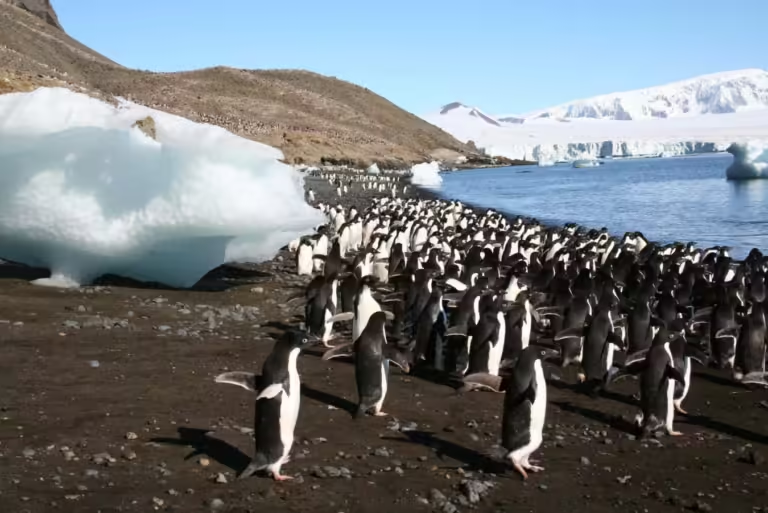
Adélie penguins in Antarctica
Professor Heather Lynch
Artificial intelligence can help accurately map and track penguin colonies in Antarctica by analyzing tourists’ photos.
“The sheer amount of data being collected around the world is incredible because everyone has a camera in their pocket now,” says Heather Lynch of Stony Brook University in New York.
Stony Brook University’s Haoyou Wu and colleagues, including Lynch, used an AI tool developed by Meta to highlight Adélie penguins in photos taken on the ground by tourists and scientists. With the guidance of human experts, the AI tool was able to automatically identify and outline the entire colony in the photo. This semi-automatic method is much faster than doing everything manually, as the AI tool takes only 5 to 10 seconds per image, compared to 1 to 2 minutes for humans, Wu says.
The research team also created a 3D digital model of the Antarctic landscape using satellite imagery and terrain elevation data. By identifying details of the landscape in tourists’ photos, the researchers were able to accurately place the photographer, and the penguin colony, within the 3D model.
This conversion of ground photography into a bird’s-eye view allows researchers to track how penguin colony locations and population sizes change over time. This could be particularly useful in remote areas of the world where aerial surveys by drones and airplanes are less common. Such tracking is important because Adélie penguins are considered a sentinel species, and changes in their numbers are an indicator of climate change. AI-assisted technology uses historical imagery to identify phenomena such as glacial changes that “occur very slowly and can only become apparent over decades of observation.” It can also be tracked, Lynch says.
“It’s important to track the population and location of penguin colonies,” says Annie Schmidt of the California-based nonprofit Point Blue Conservation Science. But she added that this is just a “first step” toward a deeper understanding of the reasons for population change.
“This could be useful, especially as many penguin colonies are rarely assessed by the research community,” says Peter Fretwell of the British Antarctic Survey. However, researchers remain divided over the effects of Antarctic tourism, with the two Adélie penguin pods that the researchers assessed often visiting the eastern side of the Antarctic Peninsula on tourist boats.
“Some scientists fear that encouraging citizen science among tourists could be used to legitimize travel and help cruise lines sell more berths and encourage expansion. “There are,” Fretwell said. “Some believe there will be little impact on the ground because the industry is well regulated.”
topic:
- artificial intelligence/
- Antarctica
(Tag translation) Artificial intelligence

